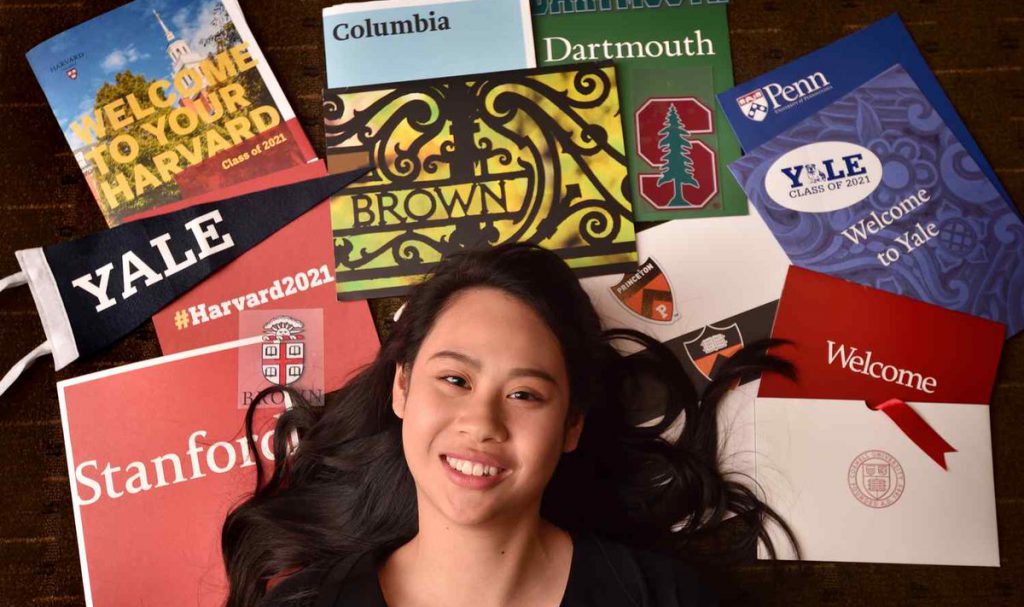Here are some facts about Cassandra Hsiao, in case you’ve never heard of her.
- This year, she was accepted into all 8 Ivy League universities in America, a very impressive feat for any student.
- At the age of 5, she moved to America with her family.
- She’s a kickass writer, with an impressive set of accomplishments (besides writing the essay that got her all those acceptance letters, she’s a very active student journalist who has interviewed quite a few celebrities, has written stage plays and she produces videos on her own YouTube channel).
Before I continue, let me clarify. I am not diminishing her successes.
Her school can be proud of Cassandra. Her family can be and probably is very proud of Cassandra. Whoever’s had a hand in shaping, mentoring and supporting Cassandra can be proud of Cassandra.
Heck, Cassandra should be proud of Cassandra. She didn’t get where she is now without a lot of hard work and dedication to pursue her interests and hone her skills.
However, I feel Malaysians have no right in making a big deal out of her particularly over the “fact” that she is a Malaysian who has succeeded. We might as well make a big deal out of Ifeoma White-Thorpe or Martin Altenburg, two other American teens who also swept the Ivy 8.
Yes, Cassandra’s essay application spoke of her experience of learning English “properly” and of her mother’s struggles with the language. However, how is that experience vastly different from that of most migrants to the US whose first languages aren’t English?
I’m not denying Cassandra’s “Malaysianness” if she still chooses to accept that part of her heritage (And based on interviews, she still does embrace it and loves some of the local food. Good on her).
But Malaysia has had very little, if anything, to do with Cassandra’s success now.
Where did she get to develop her writing skills? America.
Where did she get the exposure and opportunities even though she’s only a teenager? America.
What education system shaped her and brought her to where she is? America’s.
Does Malaysia really have much of a part in any of her achievements? I really don’t think so.
Our local media (and people) do have a tendency to hype even the most tenuous of links to distant “Malaysians” as if it’s something to celebrate.
Guy Sebastian, an Australian Idol winner moved away when he was six but there’s much “national pride” in hyping up that he’s from Klang. Joseph Schooling’s mother was Malaysian, and that too was made much of. Even the fact that Barack Obama has a Malaysian brother-in-law made local headlines back in 2008.
The trend is someone somewhere out in the world does something that grabs attention, and we see the headlines of “A Malaysian Did This” or “This Malaysian’s Success Story”.
If you dig a bit, you might find that most of these Malaysians either left the country ages ago, or might not have even spent their formative years here. Even if they did, most of them never plan on coming back to settle in Malaysia.
At the end of the day, what is the message that we’re sending to the Malaysians when we celebrate a success like Cassandra’s simply because she was born in Malaysia?
Is the key takeaway that we have to leave the country to ever achieve anything great?
It is a fearfully toxic message to spread.
No wonder we’re subject to talent drain, if that’s what we raise our citizens to believe.
I’m not saying everyone’s banned from ever leaving. I myself studied overseas for almost 6 years. But, here’s my message for all Malaysians.
To those who have left seeking “better opportunities”—come back and create those opportunities here.
To those who are thinking of leaving—go. But don’t leave forever. Come home.
And to those who wish to celebrate Malaysians, don’t forget to do so with the ones who have achieved greatness—right here at home.
Feature Image Credit: Steven Georges via Los Angeles Daily News
